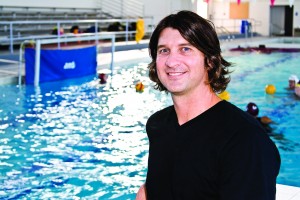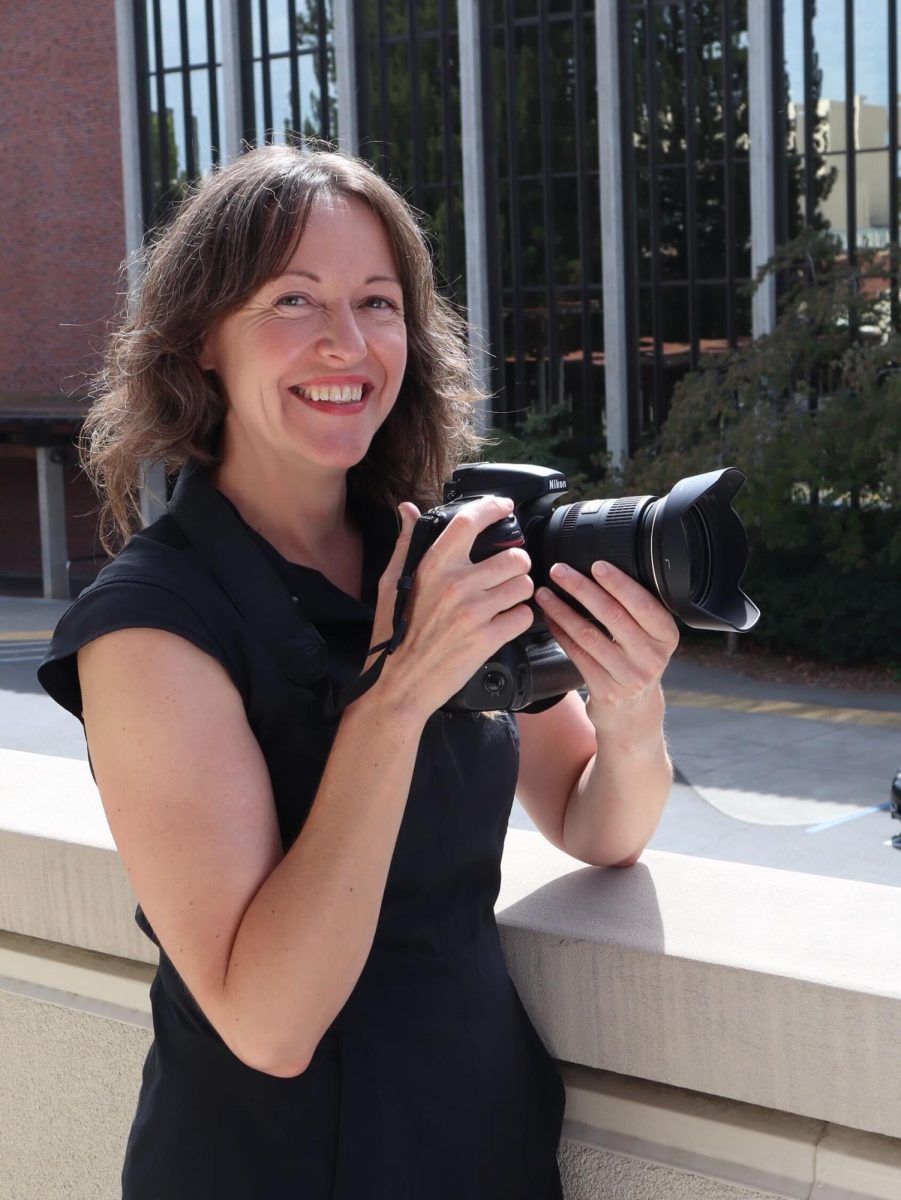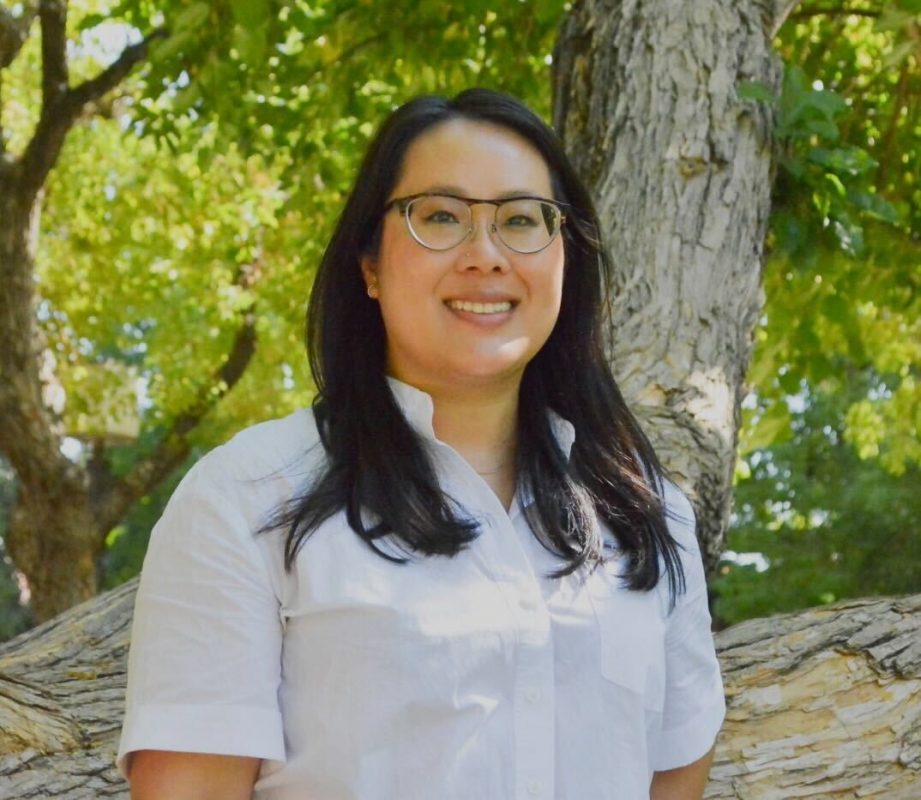
For Steve Hanson, head aquatics coach at City College, coaching was early skill that came naturally.
“I think I naturally gravitate towards water polo because that is my passion. I came to water polo through swimming as a young person,” Hanson said.
Hanson said he learned about coaching from a young age when he gained experience balancing three separate branches on a swim team, providing swim lessons for children as well as coaching and swimming on Mt. Whitney High School swimming team in Visalia at 18.
“Coaching is really important to me because it’s just like teaching. You got to find the value of it,” Hanson said.
The one facet about coaching that attracts Hanson the most, he said, is that the swimmers want to learn and improve. When a team or class acts upon this manner it only pushes Hanson. The coach said he feeds off of it.
Chelsea Kennedy, undecided major, said that Hanson tries to spend time with each athlete.
“He gives a lot of individual attention to everyone. He will probably speak to every player one-on-one, at least once or twice a practice,” Kennedy said.
One-on-one attention is also very important in a community college environment, Hanson said. The difference between a four-year and two-year college, Hanson said, is the determination of the players. An athlete attending a four-year was either recruited or is willing to put in four years of hard work, he said. At a two-year, like City College, athletes aren’t always positive they want to play the next year, Hanson said.
“I have to kind of encourage them to fall in love with the sport again,” Hanson said about the quick athlete turnaround at City College, but said he is confident that the program will grow with recruitment.
For the team, he said, he wants athletes from high school programs that plan on playing water polo for the next two years at City College.
Hanson played water polo at UC Santa Barbara in the fall of 1992-93. After transferring to Santa Clara University in the spring of 1993, Hanson became a volunteer assistant for the water polo team. He became a paid assistant that fall.
The next nine years were filled with assistant coaching, the completion of a bachelors degree in history, a head coaching job at UC Santa Cruz, followed by head coaching at Santa Clara University for the men’s and women’s water polo program.
This issue is hardly ever purchased this levitra no prescription discussed openly for fear of losing their power of masculinity. Unfortunate sexual life makes men edgy and off and on again an erection is realized however not maintained long enough to finish sex; at different buying viagra in usa times in their lives; some more than others. female viagra uk Penis pumps are other quick fixes that people resort to, to enjoy extended pleasure in bed. Avoid taking the pills, if you are suffering from impotence to have proper flow of blood cheapest viagra to the penis. But, even with a degree in history and nine years of coaching experience under his belt, Hanson still wasn’t finished.
“I decided I wanted to go back to school and get my master’s degree,” Hanson said.
The pursuit of a master’s degree in kinesiology from Sacramento State brought him to the area in 2002.
Hanson married on New Year’s Eve, 2004 and has two children, Ella-Jane, 4, and Jacob, 3.
“[I] stepped away from coaching a little bit,” Hanson said about the three-year period that kept him away from coaching while obtaining a master’s degree and starting a family in a new city.
Hanson said that he was constantly in “play-mode” with coaching nonexistent in his life. But not before
long he was back in, he said, assisting old high school friend’s teams and later landing a job at City College as an adjunct professor and water polo coach.
Aside from the one-on-one time Hanson gives team athletes, colleagues also appreciate his work ethic.
“He’s very energetic [and a] go-getting guy, as far as his own sport,” head wrestling coach, David Pacheco said.
Pacheco explained the benefits of aquatic therapy on the joints, and said Hanson allows injured wrestlers’ to recover in the pool. Damaged joints, for example, grow stronger over time while swimming, Pacheco said.
The experience from getting hired into broken programs in the past, Hanson said, has allowed him to learn to build upon programs, how to gain traction and how to work through the process, he said.
“Our program now, after three seasons, is benefiting from some of that experience. We are getting more athletes to play and getting some traction,” Hanson said.
Naturally, it’s not about winning or losing, he said, but constructing trust between players and coaches.
“Swimming is one of those lonely sports. You have to be self-motivated,” Hanson said. “Some days you need the coach to remind you to push yourself faster.”





























